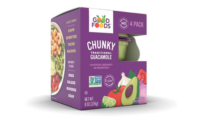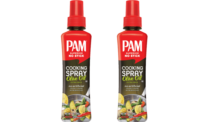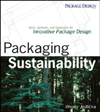Broccoli Moves from Ice Age to Fresh Packaging

StePac L.A. Ltd.’s innovative modified atmosphere/modified humidity packaging technology (MA/MH) is integrating sustainability into the long-haul transport of fresh broccoli and other vegetables traditionally shipped in ice. The technology effectively eliminates the need for ice and non-recyclable wax cartons while enhancing food safety.
There are multiple benefits of Xtend Iceless MA/MH bulk packaging for maintaining the freshness of broccoli in transit. Most notable is its positive environmental impact through driving substantial reductions in carbon emissions and food waste — two of the greatest ecological challenges facing the fresh produce industry. An added advantage is that of considerable cost savings in packaging (up to 40%) and transport expenses.
In certain countries, such as the US, broccoli and other produce items are typically packed in waxed cartons filled with ice to keep the produce cool and maintain freshness during storage and shipment. However, when the ice melts onto the produce it creates a mess and encourages growth of both plant and human pathogens. Waxed cartons also are non-recyclable. This generates untenable disposal problems for supermarkets, many of which are seeking greener alternatives in the wake of new laws imposed to tackle this problem.
One of the biggest challenges the company faced when developing the product was how to integrate modified atmosphere packaging into a field-packed process. Much of the broccoli in the US is field-packed in cartons, palletized, and then ice is added upon arrival at the packing house. Field-packing represents an obstacle for implementation of MA/MH technology.
“We developed a solution that enables the broccoli to be field-packed in Xtend packaging and then forced air and/or vacuum cooled in the sealed packaging. This seamlessly integrates the packaging into the existing packing process,” explained Gary Ward, Ph.D., Business Development Manager for StePac, noting that the system is patented in the U.S. and Mexico.
Looking for a reprint of this article?
From high-res PDFs to custom plaques, order your copy today!









